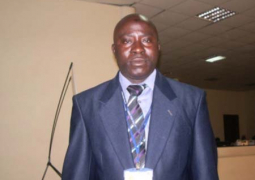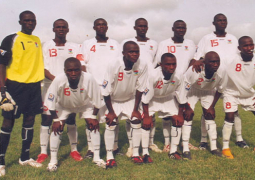Alerted by the World Organization Against Torture (OMCT) to the reality that an increasing number of governments are allowing torture to spread and that public opinion appears to tolerate the practice, we feel compelled to state unequivocally that respect for human dignity means that torture is forbidden under all circumstances.
We know that torture has always been widespread, but we had hoped the commitments by the 146 states party to the Convention against Torture and other Cruel, Inhuman or Degrading Treatment or Punishment would have led to its disappearance.
However, it is now apparent that too many governments in both the North and the South are using certain fears and tensions to justify practices that they had hitherto denied or hidden.
Claims of cultural specificity lead some governments to deny that some ethical values are universal and to dispute the notion that human rights are the same everywhere.
The demands of development are said to justify the withdrawal of basic freedoms in the pursuit of collective economic goals, which are in turn held to be more important than the protection of individual rights.
Finally, security, exalted as the supreme value, is used to justify departing from obligations that are nevertheless defined as absolute.
We are struck by the fact that most victims of torture are the poor whose economic or social rights have also been violated. If they protest, they and those who defend them are subject to violence and torture or simply disappear forever.
The criminalization of social protest is spreading and is winding back centuries of progress.
We reject legal or technical quibbles that define one type of violence as torture and another as “legitimate pressure.” The torturer, by inflicting deliberate pain or acute physical or mental suffering on a person, aims to secure a confession or to silence, humiliate and terrorise.
We will hold responsible those governments who give free rein to paramilitary groups, death squads or private militia, or who fail to check the abuse of police power.
It is incumbent on authorities and judicial or quasi-judicial institutions to ensure that this law is not only proclaimed but also adhered to in everyday life.
The media and the public opinion are essentially responsible for supporting these authorities in this task and for challenging them if they fail in their duty.
Regrettably, in the past decade, opinion leaders, who are supposed to ensure greater respect for human rights, have all too often allowed themselves to be persuaded - in the
name of “realism and expediency” - to tolerate practices tantamount to torture or ill-treatment.
Security, the right to a decent social and economic life, and cultural freedom belong to every member of society. They not only belong to innocent people whose dignity and freedom are inviolable by the state and who must be guaranteed respect for their physical, mental and moral being, but also to offenders who should expect to be judged by independent courts where penalties are defined by law.
These rights also belong to the police and judiciary, who have the duty of building a safe society by such legitimate means as are worthy of their professions.
They belong to victims, who must renounce vengeance in their demands for justice and compensation. They belong to women, who in their domestic and professional lives must be confident that they will be given equal treatment with men.
They belong to indigenous and ethnic minorities who also enjoy the same rights as any other members of the human family. They belong to the poor, for it is no crime to struggle for a better life.
They belong to migrants and displaced people looking for the security denied them in their home countries. They belong to those who defend human rights, whose efforts deserve recognition and support; for any infringement of their rights affects the rights of the victims they defend. Finally these rights belong to society as a whole, where no progress is possible without the individual and collective belief that we can create a world in which such rights are guaranteed to everyone.
We, Nobel Laureates, endorse this declaration, reaffirming that the prohibition of torture and cruel, inhuman or degrading punishments is absolute. To refute this is to undermine the fundamental value of human dignity, the basis of any society under the rule of law.
We affirm that this is a universal law and that freedom from torture cannot be considered separately from other human rights.
We appeal to political leaders, decision-makers and public opinion in every continent to be vigilant and active in the defense and promotion of these rights.
We call upon judicial and quasi-judicial bodies to uphold the law in its entirety, mindful of the obligation to protect the victims, whoever they might be and irrespective of their beliefs and activities.
We support the campaign that OMCT is launching to alert public opinion to the fact that torture is a negation of human dignity that affects everyone.
“Governments that block the aspirations of their people, that steal or are corrupt, that oppress and torture or that deny freedom of expression and human rights should bear in mind that they will find it increasingly hard to escape the judgement of their own people, or where warranted, the reach of international law”.
William Hague




